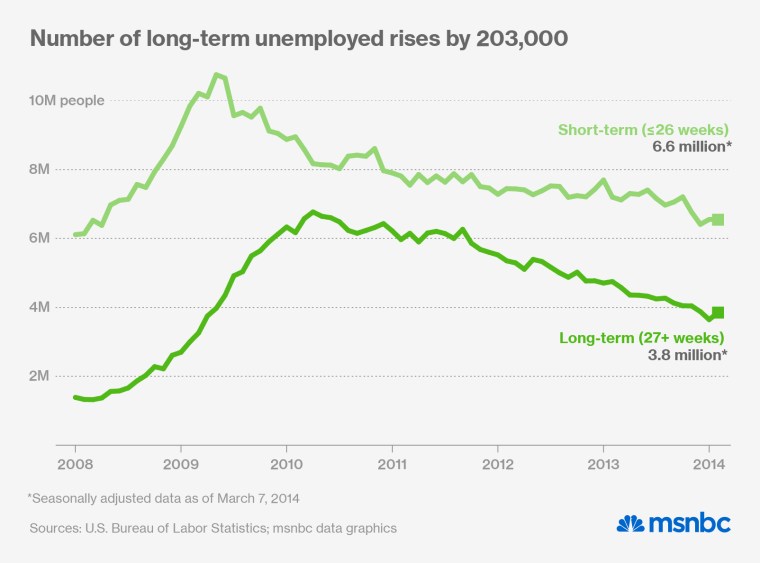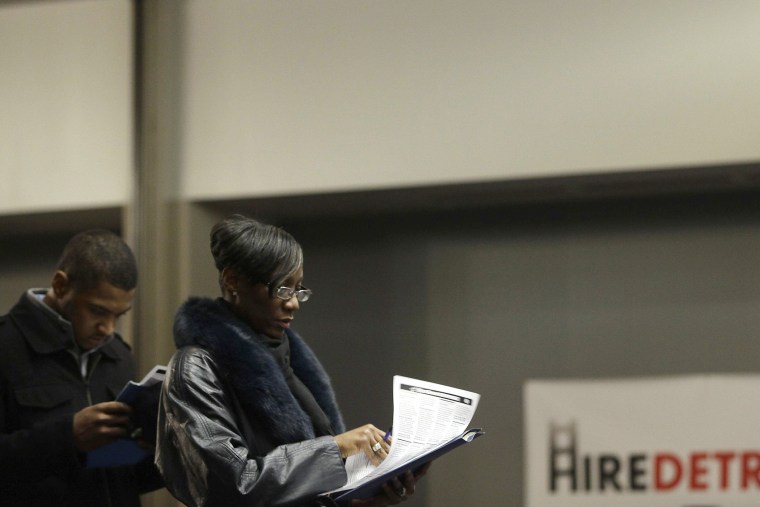The U.S. economy added 175,000 new jobs in February, beating expectations that bad winter weather would significantly depress job growth. But the ranks of the long-term unemployed also grew last month, helping to nudge the unemployment up from 6.6% to 6.7%.
After many months of gradual decline, the number of long-term unemployed swelled by 203,000 in February, totaling 3.8 million. The change has come as Congress has let federal unemployment benefits expire, cutting off more than 1.7 million Americans who have been looking for work for more than 26 weeks.
The silver lining is that those the government counts as being unemployed are actively seeking work. That's why economists may actually be heartened that the unemployment rate increased slightly in February.
The bigger concern is that the long-term unemployed will be so discouraged that they'll stop looking for work entirely, dropping out of the labor force—a concern that Democrats have voiced in their push to revive unemployment benefits. The labor force participation rate was unchanged in February, at 63%, but it remains at a historic low.
The unemployment insurance debate has returned to the Senate yet again this week, but the primary obstacle remains unchanged. Republicans don't want to extend aid without paying for it, and they've rejected the Democrats' payfors out of hand, including Sen. Jack Reed's latest offer for a six-month extension offset by savings from the recently passed farm bill. But February's concerning numbers about the long-term unemployed could add new urgency to the debate.

